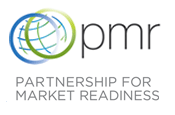The 13th meeting of the Partnership Assembly (PA13) of the Partnership for Market Readiness (PMR) and accompanying workshops received updates on mitigation initiatives from around the world, including energy policy developments in Chile, the status of China's carbon market developments, the Norwegian Carbon Credit Procurement Program, and climate mitigation initiatives in Sri Lanka.
PA13 also received updates from the UNFCCC on progress towards Paris and from the World Bank on its Carbon Pricing Initiatives and Transformative Carbon Asset Facility.
 30 October 2015: The 13th meeting of the Partnership Assembly (PA13) of the Partnership for Market Readiness (PMR) and accompanying workshops received updates on mitigation initiatives from around the world, including energy policy developments in Chile, the status of China’s carbon market developments, the Norwegian Carbon Credit Procurement Program, and climate mitigation initiatives in Sri Lanka. PA13 also received updates from the UNFCCC on progress towards Paris and from the World Bank on its Carbon Pricing Initiatives and Transformative Carbon Asset Facility.
30 October 2015: The 13th meeting of the Partnership Assembly (PA13) of the Partnership for Market Readiness (PMR) and accompanying workshops received updates on mitigation initiatives from around the world, including energy policy developments in Chile, the status of China’s carbon market developments, the Norwegian Carbon Credit Procurement Program, and climate mitigation initiatives in Sri Lanka. PA13 also received updates from the UNFCCC on progress towards Paris and from the World Bank on its Carbon Pricing Initiatives and Transformative Carbon Asset Facility.
The meeting, which convened in Sweimeh, Dead Sea, Jordan from 28-29 October 2015, also discussed: Alberta’s expression of interest to join the PMR as a Technical Partner, and an update on recent developments of Alberta’s market-based instruments; annual PMR Project Implementation Status Reports from Brazil and Kazakhstan; and draft Market Readiness Proposals (MRPs) from Jordan and Peru.
Participants heard presentations on the Technical Work Program and Knowledge Sharing, including an analysis of Clean Development Mechanism projects, and on developing policy-level MRV for fossil fuel subsidy reform and carbon pricing policies. Regarding an update on the Policy Analysis Work Program, several countries have submitted Expressions of Interest (EoIs) for receiving technical assistance to establish post-2020 mitigation scenarios and identify effective and cost-efficient policies, including carbon pricing instruments, to achieve their mitigation ambitions.
PMR has also published a report, ‘Tackling Carbon Leakage: Theory, Evidence and Policy Design,’ which discusses carbon leakage in carbon pricing policy, especially in light of concerns voiced by emissions-intensive industries on the implications of carbon pricing and competition with firms located in jurisdictions without equivalent policies. The report discusses how to: evaluate competitiveness and carbon leakage impacts, both negative and positive, due to carbon pricing policies for different sectors and the economy as a whole; mitigate the risk of negative impacts and strengthen positive impacts (through instrument design or complementary policies) in the short and long term, and for different levels of expected decarbonization; and manage the dialogue process between government, business and civil society on the implications for competitiveness and risks of carbon leakage and its mitigation. The paper also looks at lessons learned as a way to provide guidance for addressing carbon leakage issues within various national contexts.
The PMR, which is housed at the World Bank, is a forum for collective innovation and action, and a fund to support capacity building for climate change mitigation. [Publication: Tackling Carbon Leakage: Theory, Evidence and Policy Design] [PMR Webpage] [PMR Partnership Assembly Website]